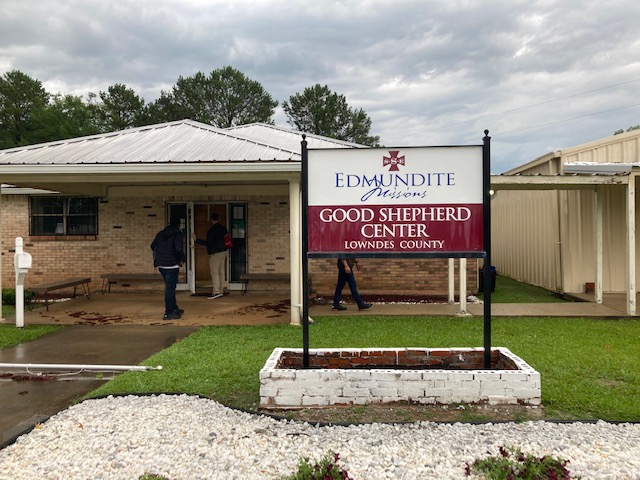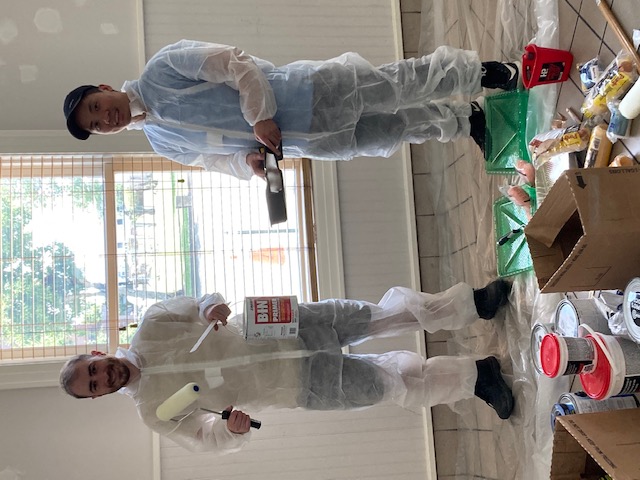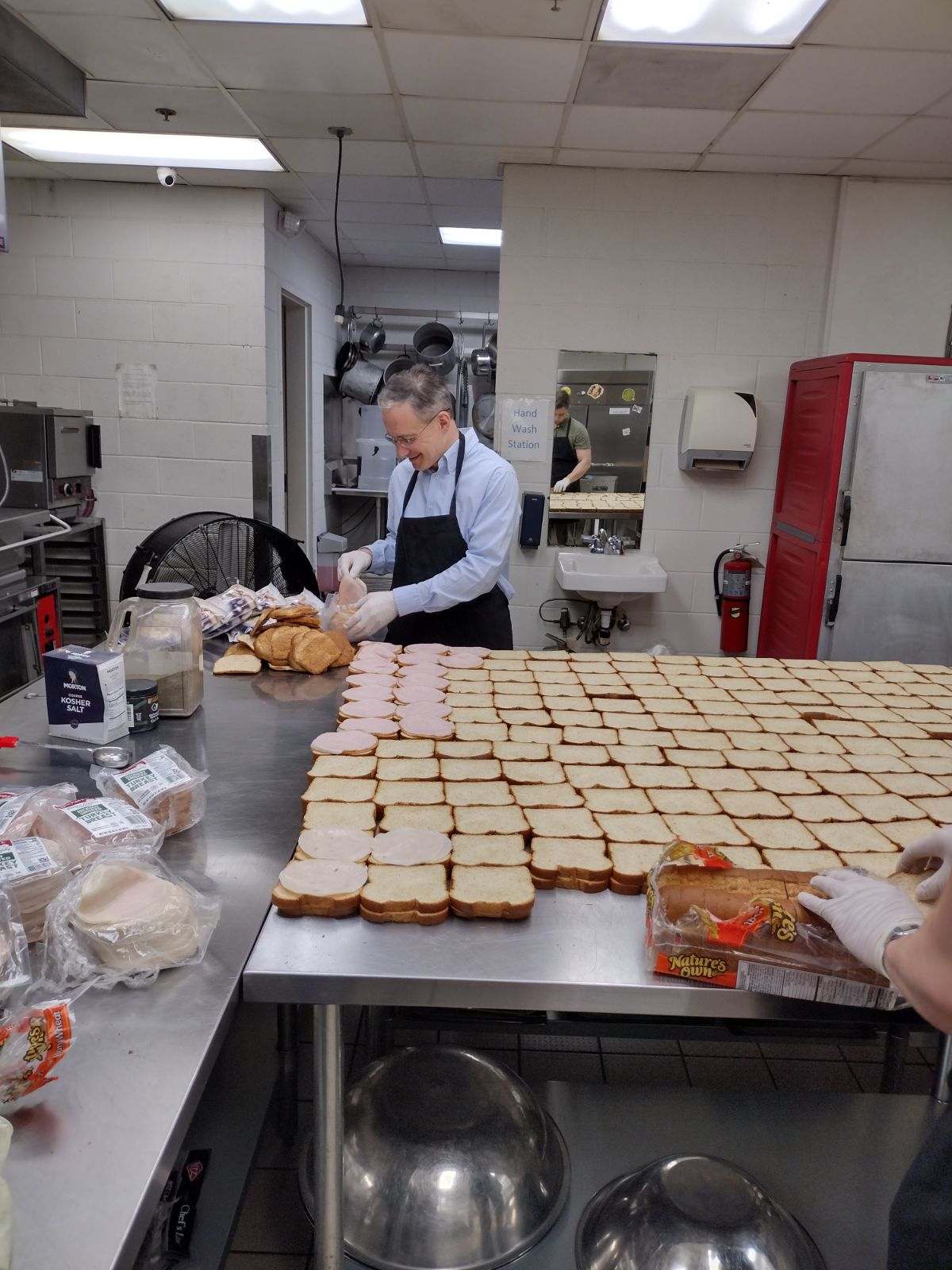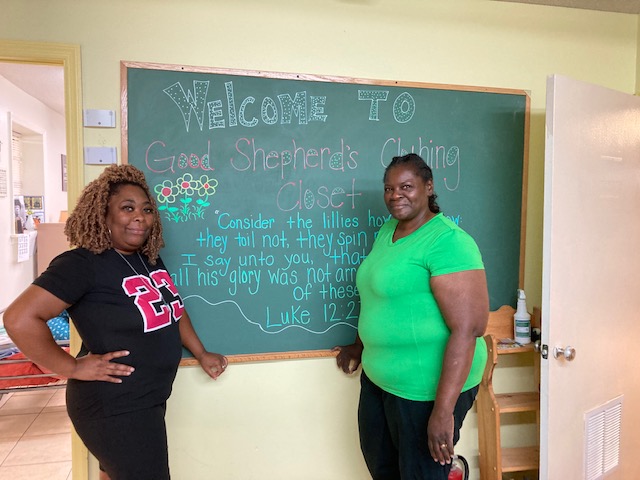June 21, 2023 at 10:46 a.m.
JOURNEY TO SELMA
As we passed through the streets of Selma, Ala., on our first day here, we saw streets scattered with abandoned houses and buildings, others occupied but in great disrepair. Many still bear the marks of a tornado this January that scarred an already struggling city. The scenes make visible the poverty that affects some 40 percent of the city’s population.
The city (from l.) is still recovering from tornadoes that ripped through the area in January. (OSV photo)
Yet when we arrived at the Edmundite Missions, we encountered a place of joy and hope. Here, young people arrive for summer camp to take part in myriad activities, the hungry come for food, those whose homes have been damaged receive aid.
I am joined by five seminarians of the Diocese, Arnold Pyram, Joseph Hien Pham, Zephryinus Ogbenna, Robert Cieply and Anthony Leo. We are here to serve with the Missions for most of June and July, a time to learn the rich and complex history of Selma and see upfront how the Missions bring the light of Christ to the community.

The Edmundite Missions in Lowndes County (Photo provided)
THE MISSION
It all started with the arrival of Edmundite Fathers Francis Casey, SSE, and Barney Paro, SSE, in 1937 in response to the call of Pope Pius XI to minister to the African-American community in the South. Struck by the extreme poverty, they began serving sandwiches out of their home. Over time, the Edmundites expanded their service in Selma and the surrounding rural region.

Seminarians Anthony Leo and Joseph Hien Pham assist with some painting. (Photo provided)
What began with serving sandwiches grew into what is today the Edmundite Missions. This operation functions with the work of some 60 staff. It supports itself solely through private donations and grants.
In this city that had a pivotal role in the civil rights movement, the needs have only increased over the decades with economic decline and diminishing population. Today, those the Missions serve have an average household income of less than $15,000, some 70 percent are unemployed and 85 percent uninsured.

Seminarian Tom Fallati makes sandwiches to feed the poor. (Photo provided)
In the midst of such poverty, the Missions bring the light of Christ. The Bosco Nutrition Center serves some 1,300 meals per day, with lunch and dinner served both on-site and through deliveries. Dinner alone can bring some 200 people to the center. The Bullock Recreation Center includes a gym, fitness center and community rooms, offering kids and adults a place for sports and recreation, and classes in piano, dance, nutrition, photography and a variety of other offerings. A thrift shop offers household goods at no cost, and those in homes can receive assistance with repairs, furnishings and the like. A medical clinic offers checkups and care.
Selma, Ala., holds a pivotal place in the civil rights movement in this country with the Selma to Montgomery marches and “Bloody Sunday” when marchers were beaten crossing the Edmund Pettus Bridge by police. (OSV photo)
The Missions also aim to help those they serve to rise out of poverty. A New Possibilities Youth and Academy program aids high performing primary- and secondary-school students in academics and exposes them to professionals who can offer an inspiration for success. Numerous other programs offer aid in housing, job training and many other needs, offering assistance for immediate needs and pathways out of poverty.

Staff members Monique and Stephanie at the Good Shepherd's Clothing Closet (Photo provided)
But even more than the material assistance, the Missions offer a place of joy and hope, a gathering place, a community. That we have already seen as we have started our time here. We begin our day with Mass with the Catholic community at Our Lady Queen of Peace parish, then spend the day working alongside the dedicated Missions staff.
We are here to serve and to learn. Most especially, we will be open to the grace of Christ at work in the Missions.
Tom Fallati is a seminarian of the Diocese of Albany.
MORE NEWS STORIES
- Journey together, seek real encounters, pope advises young people
- Irish lay missionary kidnapped from orphanage in Haiti
- West Virginia bishop warns on immigration: ‘The final judge of our actions is God’
- Pope offers prayers after shipwreck of migrant boat off Yemen
- Peace, disarmament begin in the heart, says Archbishop Broglio
- Catholic MBA programs see business as force for good, blending doctrine, commerce
- Trump administration moves to reinstate VA health policy fully excluding abortion
- Mass celebrated at ‘Alligator Alcatraz’ for detained Catholic migrants
- Lebanese Catholic clergy commemorate Beirut port explosion victims five years later
- Nagasaki Franciscan monastery that survived atomic blast still stands as messenger of peace













Comments:
You must login to comment.